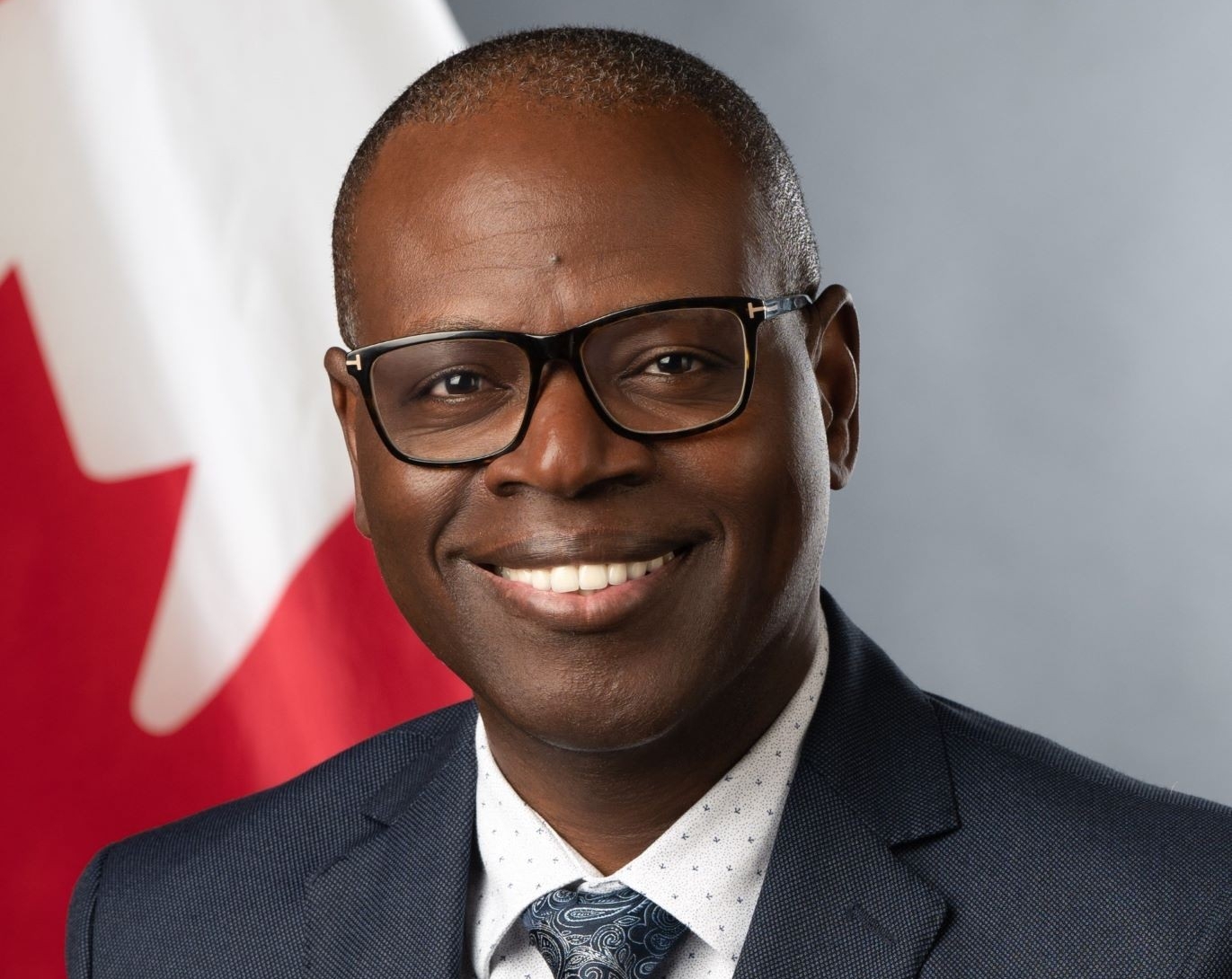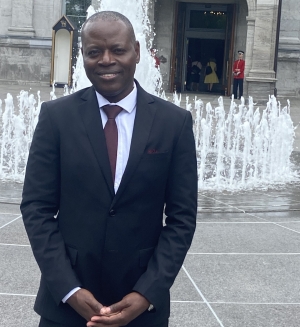What is your vision for your latest work on behalf of Canada to Zimbabwe, Malawi and Botswana?
AA: Building on the work of predecessors, I seek to advance our feminist foreign policy, which here prioritizes poverty reduction, health, education, governance, democracy and human rights, with a strong emphasis on gender equality and the empowerment of women and girls. My host countries also want more private investments from Canada, improved visa numbers and processing time — especially for students — and closer ties between our governments and peoples.
How did your journalism experience contribute to your work as a policy expert and eventually, ambassador?
AA: I became interested in, what I later understood to be, policy at a young age. A radio host at 16, I was already curious about how government decision-making works and why so few electoral promises were kept. ‘All politicians are liars’ never felt like a fully satisfying answer to me. As a policy-minded journalist, I sought to explore the extent to which a politician’s lack of familiarity with the levers of government, budgetary constraints or a deficit in designing the right policy, accounted for some of those failures.
My experience as a journalist helps me understand the peculiar political dynamics of a new country, assess core interests and motivations of interlocutors, and engage and communicate across differences — all key skills for diplomacy. In the current misinformation/disinformation climate, the ability to recognize legitimate news versus sensationalized opinions and rumours is also particularly useful.
How did your studies at Concordia contribute to your success?
AA: At a personal level, my studies at Concordia were everything. I arrived too late in spring 2001 to enroll as a full-time student, so I started off as an independent student and only took classes I knew I would enjoy. It was the best decision. Brooke Jeffrey, professor in the Department of Political Science, made me fall in love with Canadian history and politics. Former department chair Reeta Tremblay was the first person in Canada to tell me I was a “star” and to embrace my (strange) foreign accent when I seemed unwilling to apply for a teaching assistant position. On my last day on campus, Professor James Kelly told me he was proud to be sending me as a new public servant to Ottawa. It is hard to overstate what such encouragements can do for the psyche of a recent immigrant, who speaks English as a second language and who had to start life over.
At an academic level, political science taught me about the key role of policy in aligning government actions with priorities and citizens’ expectations, and the importance of an inclusive and transparent policy process in a democracy. Any policy chops I have now can be attributed in large part to the benefits of writing challenging assignments in the master’s program. In strategic-policy practice, I learned that enabling government policy is central to what happens, including in areas where private sector leads. I was lucky to find those fields that match both my interests and my abilities. I have also had excellent managers and mentors in government who guided me well.
Do you have any remaining ties to Concordia?
AA: I have been back on campus a few times since leaving in 2005. It was wonderful to return for federal recruitment one time and to participate in an alumni panel about the benefits of the MPPPA program another time. I also find it important to donate to the Annual Giving campaign. I was very moved to receive a wonderful letter of congratulations from President Graham Carr on my appointment as ambassador. Fellow graduates from the MPPPA program remain some of my best friends and closest members of my professional network.


 Adler Aristilde, BA 03, MA 05, was appointed Ambassador of Canada to Zimbabwe, High Commissioner to Malawi and High Commissioner-Designate to Botswana in July 2023.
Adler Aristilde, BA 03, MA 05, was appointed Ambassador of Canada to Zimbabwe, High Commissioner to Malawi and High Commissioner-Designate to Botswana in July 2023.
 “Arriving at Concordia as an independent student, I chose classes I knew I’d enjoy. It was the best decision,” says Aristilde.
“Arriving at Concordia as an independent student, I chose classes I knew I’d enjoy. It was the best decision,” says Aristilde.


